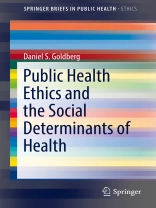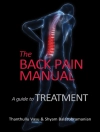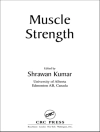This progressive resource places concepts of social determinants of health in the larger contexts of contemporary health ethics and the evolution of social reform. It provides needed analysis of the larger causes behind the immediate causes of illness and epidemics, particularly injustice, systemic inequities, and the cumulative effect of compound disadvantages. This moral approach to collective and individual responsibilities—on the part of practitioners as well as the public—supports a sound blueprint for finding answers to longstanding global and local concerns. Readers are challenged to recognize the critical role of social determinants to their perception of health issues, controversies, and possibilities as the book:
· Details the epidemiologic evidence regarding social determinants of health.· Key ethical implications of the evidence regarding social determinants of health.
· Considers the role of risky health behaviors in determining population health outcomes.· Addresses ethical questions of priority-setting at the policy and practice levels.
· Translates social determinants of health into health policy goals.
Half textbook, half monograph, Public Health Ethics and the Social Determinants of Health Is geared toward students in MPH programs as well as public health professionals in diverse contexts such as local health departments and non-profit organizations. It informs public health scientists and scholars, and can also serve as an introductory text for students in public health ethics, or as part of a general applied ethics course.
Cuprins
Introduction.- The Epidemiologic Evidence Regarding the Social Determinants of Health.- Justice, Compound Disadvantage, and Health Inequities.- Ethics, Responsibility, and Social Patterning of Risky Health Behaviors.- The Unbearable Oughtness of Public Health Policy.- The Social Determinants of Health and Public Health Practice.- Conclusion.
Despre autor
Daniel S. Goldberg, JD, Ph D, is trained as an attorney, a historian, and a public health ethicist. His work centers on the law, ethics, and policy of medicine and public health. He focuses primarily on noncommunicable disease, analyzing problems of health inequalities, priority-setting, and health-related stigma. He maintains particular expertise on problems related to the equitable treatment of chronic pain, past and present.












